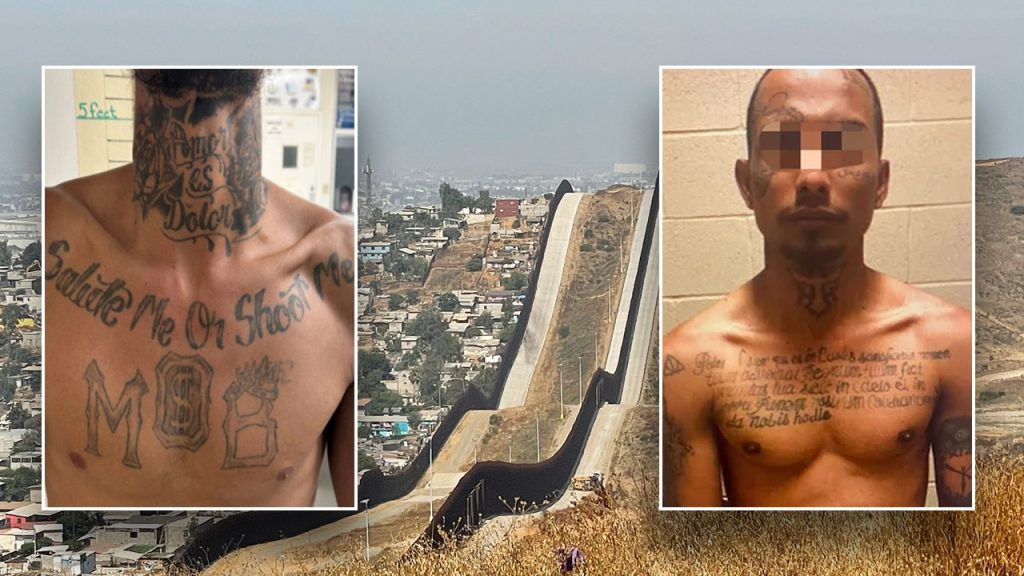The international criminal organization Tren de Aragua (TdA), originating from a Venezuelan prison, poses a growing threat to the United States, with experts warning of imminent targeted assassinations. Jose Gustavo Arocha, a former Venezuelan army lieutenant colonel, emphasizes the group’s modus operandi, mirroring patterns observed in Venezuela and Latin America. TdA, meaning “Train from Aragua,” has expanded its reach beyond Venezuela, establishing a presence in several South American countries and at least 30 major U.S. cities. Arocha, who experienced imprisonment under the Maduro regime, characterizes TdA as a state-sponsored entity trained to destabilize the Western hemisphere through orchestrated chaos and violence. He urges immediate action, emphasizing the increasing difficulty of combating the group as it becomes more entrenched within communities, posing a significant threat to U.S. society.
Arocha identifies “sanctuary city” and “sanctuary state” policies, coupled with movements to defund the police, as catalysts for TdA’s growth and impunity. These policies, he argues, create an environment conducive to the group’s criminal activities, mirroring the breakdown of law and order witnessed in Venezuela. The absence of robust law enforcement and the limitations on cooperation between local authorities and federal immigration agencies create a safe haven for TdA, allowing them to operate without fear of apprehension or deportation. This lack of accountability, Arocha warns, will lead to TdA spreading throughout the U.S. like a disease, further jeopardizing public safety and national security.
The primary targets of TdA’s violence, according to Arocha, will include law enforcement officials, ranging from patrol officers to police chiefs and sheriffs, as well as elected officials who challenge their operations. The targeting of law enforcement aims to cripple the state’s ability to combat their criminal activities, while attacks on political leaders serve to intimidate and silence opposition. Furthermore, individuals perceived as enemies of the Maduro regime or refugees fleeing its oppressive rule are also at risk, demonstrating the group’s transnational reach and its connection to the Venezuelan government.
Experts believe that TdA’s campaign of targeted assassinations in the U.S. has already commenced. Jessica Vaughan, director of policy studies at the Center for Immigration Studies, cites the case of TdA member Yurwin Salazar, who allegedly murdered former Venezuelan police officer Jose Luis Sanchez Valera in Miami, highlighting the group’s willingness to employ extreme violence against perceived enemies. This incident underscores the urgency of addressing the TdA threat and the potential for further violence if left unchecked. Vaughan echoes Arocha’s concerns regarding sanctuary policies, emphasizing their detrimental impact on efforts to combat TdA. She argues that these policies shield criminals from immigration enforcement, making sanctuary jurisdictions attractive havens for TdA members.
Vaughan advocates for the abolishment of sanctuary policies, stressing the importance of unhindered information sharing between local law enforcement and Immigration and Customs Enforcement (ICE). The current limitations on cooperation, she contends, are politically motivated and obstruct effective law enforcement efforts. The concentration of TdA members in sanctuary jurisdictions like Chicago, Colorado, and New York is not coincidental, Vaughan argues, as these policies provide a shield against detection and deportation. This deliberate exploitation of sanctuary policies underscores the need for a comprehensive federal strategy to dismantle the group.
While some states, such as Texas, have taken proactive measures to combat TdA, experts agree that a nationwide, federally led approach is necessary. The scale and complexity of the TdA threat, coupled with its transnational nature, require a coordinated effort involving all levels of government. Crucially, this involves building stronger partnerships with local law enforcement agencies, particularly in jurisdictions where TdA operates, which necessitates overcoming the obstacles posed by sanctuary policies. The artificial barriers created by these policies hinder effective information sharing and cooperation, impeding efforts to dismantle TdA and protect communities from its violence. A comprehensive strategy, therefore, must address these policy challenges to effectively combat this growing transnational criminal threat.

